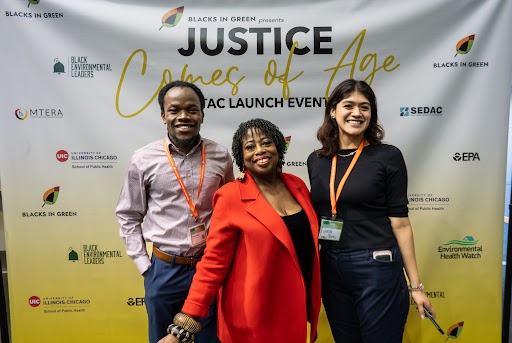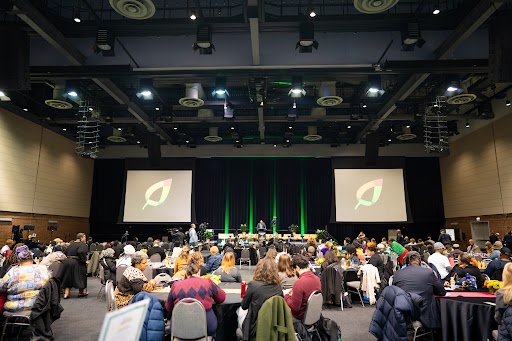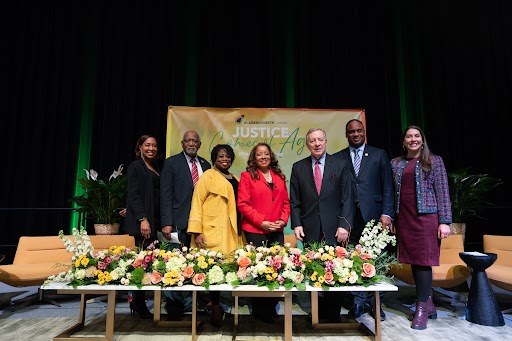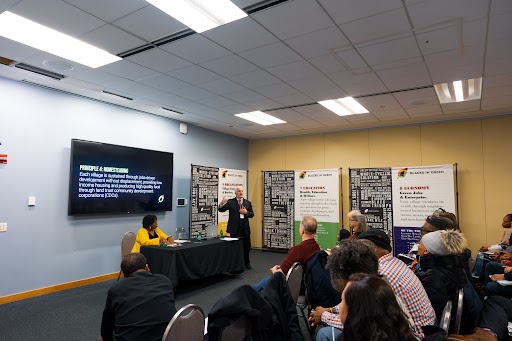Prairie Rivers Network is committing our resources to support Black and Brown communities that are most hard hit from environmental harm, and often go overlooked. For many years, environmental issues have been framed through a white lens. When Black and Brown people tell their own stories, they share experiences that everyone can understand. Toxic waste is often dumped in their neighborhoods, the wind blows toxic fumes to their side of town, and the water is filled with invisible chemicals that their children grow up drinking. An NAACP study found that African Americans are 75% more likely than average Americans to live near waste-producing facilities, or within fenced-lined communities. We want to help amplify these stories to change the narrative.
A conference titled, “Justice Comes of Age,” hosted by Blacks in Green, an environmental justice organization based in Chicago, was attended by Silas Gilklay and Jizelle Torres, PRN’s Energy, Climate, and Water Program Assistants. At the three-day long event, Feb. 1-3, 2024, hundreds of activists met on the campus of the University of Illinois Chicago to learn about the Environmental Justice Thriving Communities Technical Assistance Center (TCTAC), one of 16 such centers nationwide founded to provide technical assistance to impacted communities. The other TCTAC serving Illinois USEPA Region is the Great Lakes TCTAC and PRN is working to ensure underserved rural and coal communities are connected to this support.

According to Naomi Davis, CEO/Founder of Blacks in Green, who spoke at the conference, Black organizers need to “flip the script” by telling their own stories and taking on leadership roles, without excluding allies from working alongside them. “Stop paying white people to help black people,” Davis told the audience, “pay black people to help black people.” Historically, people of color have played central roles in fighting for environmental justice. We must embrace the experience and wisdom of these communities.
Historically, Black communities have missed out on federal funding opportunities due to a lack of expertise in applying for grants. Their exclusion stems from systemic racism, historic barriers, and a lack of expertise to applying for grants. Grant applications are burdensome, particularly for those without experience, and government agencies have been unresponsive to the needs of environmental justice communities. The Blacks in Green TCTAC has a mentorship program to provide technical assistance for grant writing and management.
Additionally, Blacks in Green is building a “Sustainable Square Mile” using a whole-system approach to increase the wealth and well-being of communities to protect them from climate change. This project includes a skill development program for young people to gain training for jobs in clean energy and agriculture. Davis sees it as a hub for community building and workforce development.
Prairie Rivers Network staff members attended this TCTAC event because we want to actively embrace collaboration and put power back into the community. Look out for more of our environmental justice work in the future!










